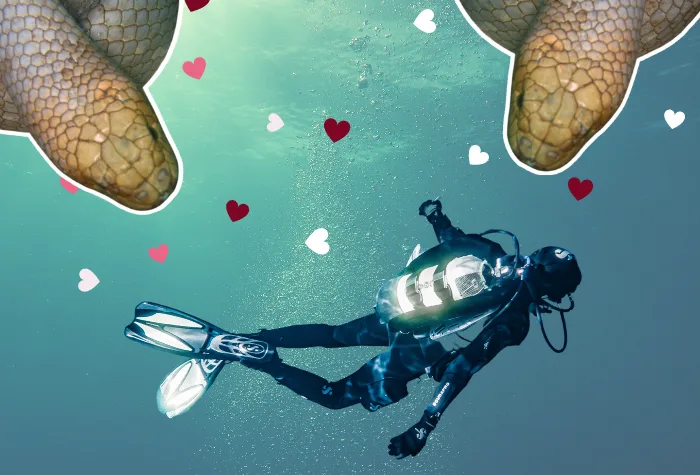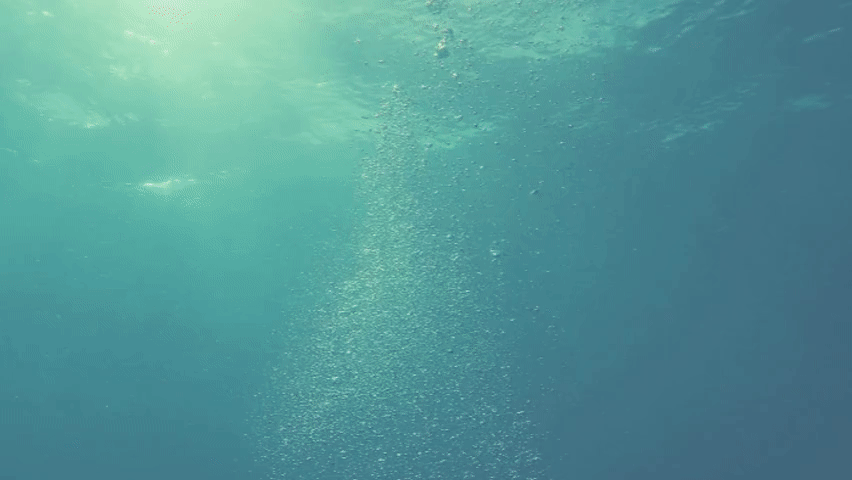
Bad romance: Sea snakes are mistaking scuba divers for mates
They just want to be friends.
Venomous olive sea snakes are known to attack scuba divers in unprovoked incidents that sometimes involve biting and chasing.
Now, a new study published in Scientific Reports finds the snakes may just be trying to say "hello" and possibly spark up a romance.
Upon analysis of data collected between 1994 and 1995 by Tim Lynch, one of the study's authors, while diving in Australia's Great Barrier Reef, researchers found the encounters were more frequent during mating season.
Attacks involving males occurred immediately after unsuccessfully pairing with a female or after an incident with a male rival. Females tended to approach divers after chasing off a male snake.

GIF collage created by Cheryl Santa Maria using public domain vectors and photos. Sea snake image credit: Richard Ling/Wikimedia Commons CC BY-SA 2.0 | Diver image credit: Pia/Pexels
SEE ALSO: New study finds city mammals are getting larger
Past research suggests sea snakes have trouble identifying shapes in water, and they are likely mistaking the divers for potential mates or, in the case of females, as hiding spots.
Experts say the best way for a diver to avoid a sea snake attack is to remain still and allow the snake to investigate them.
Though venomous, sea snakes don't deliver toxins every time they attack. While their venom is strong enough to kill a human, fatalities are rare.











